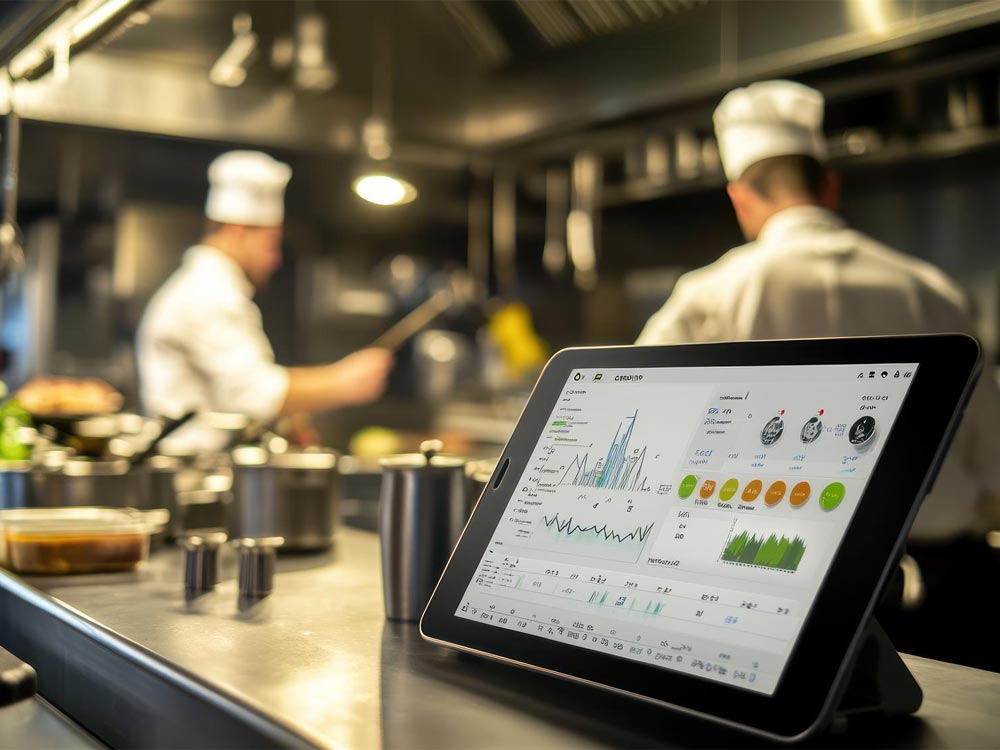Imagine this: Carbon emissions clogging the skies, severe traffic congestion, and incompetent supply chains swallowing fossil fuels. These are extreme realities that logistics companies deal with.
The world we live in today is on the edge of an environmental crisis, and concern for climate change is even greater than ever. The logistics and transportation industry stands at a critical juncture. According to the International Chamber of Commerce, the transportation sector accounts for 75% of the contribution to logistics emissions.
The logistics industry has a significant impact on the environment because of the energy-intensive nature of its operations, such as transportation, distribution, and warehousing. Due to rising climate change concerns, contributing to a greener and more sustainable future has become the need of the hour.

a. What is Sustainable Logistics and why it Matters in Logistics?
Sustainable logistics is all about adopting eco-friendly practices in the supply chain and logistics industry. It focuses on reducing the environmental impact of warehousing, transportation, and distribution activities.
The key elements include better resource use, reduced carbon emissions, and implementation of sustainable innovations like electric vehicles for transportation, opting for renewable energy options, and energy-efficient warehouses.

The Global green technology and sustainability market is expected to from 13.76bn dollars to approximately 62bn U.S. dollars between 2022 and 2030, a 20.8% compound annual growth rate.
Sustainability is the map leading us toward a greener, cleaner, and profitable future in logistics. By optimizing routes, reducing waste, and electrifying fleets, we can work on cutting costs and fostering efficiency.
b. Sustainable logistics practices
Reducing carbon footprints is one of the most significant challenges facing the logistics industry in terms of sustainability.
1. Optimized Route Planning
To reduce emissions and fuel consumption, efficient route planning is critical. By opting for GPS technology, advanced algorithms, and real-time data, logistics companies have the ability to develop optimal routes that can avoid traffic congestion and reduce travel distances.
This results in:
- Improved delivery efficiency,
- Better customer satisfaction, and
- Saves fuel.
2. Green Warehousing
This concept utilizes the use of sustainable building practices and energy-efficient technologies. LED lighting, solar panels, and advanced insulation reduce energy wastage. Smart systems and automation focus on better energy allocation by managing heating, lighting, and cooling based on real-time statistics.
3. Electric and Alternative Fuel Vehicles
The transition towards electric and alternative vehicles is a crucial step towards sustainable implementation. Electric vans and trucks are a great deal in reducing emissions and reliance on fossil fuels simultaneously. Biofuels and hydrogen fuel cells are emerging as a reliable alternative to conventional diesel engines, offering eco-friendly options for numerous logistics needs.

4. Sustainable Packaging
Sustainable packaging aims to minimize waste and environmental impact of logistics procedures. Companies are shifting towards biodegradable, recyclable, and reusable packaging stuff. Improving packaging design to lower the cost of material use and enhance transport efficiency is also a key step in this regard.
5. Predictive Maintenance
Implementation of a predictive maintenance system can enable alerts via vehicle sensor data to detect when maintenance is needed. Timely maintenance lowers the risk of breakdowns and improves vehicle efficiency, leading to lower emissions.
6. Fleet management via Data Analytics
For businesses with large vehicle fleets, data analytics can assist in improving overall fleet performance. It can also facilitate in determining the correct number of vehicles required, enhance scheduling and dispatching, and even analyze the viability of hybrid or electric vehicles in the fleet.

7. Reverse Logistics
Reverse logistics prioritizes process of return, recycling, refurbishment and responsible disposal of products. By developing effective systems for dealing with returns, companies can focus on reducing waste. This step not only ensures benefits for the environment but also restores value from returned goods.
8. Digital Transformation
Advanced technologies like AI, IoT, and blockchain are transforming logistics operations. These technologies enhance traceability, transparency, and efficiency, resulting in optimized inventory management, real-time tracking, and predictive maintenance. Digital transformation assists in helping companies meet their sustainability goals by better resource allocation and less waste.
9. Smart Inventory Management
Smart inventory management systems reduce the need for more stock, leading to less waste and storage costs. A just-in-time inventory system ensures that products are delivered as required, without any overproduction and redundant resource use. This leads to a more sustainable supply chain.
10. Demand Forecasting
With the help of data analytics, demand patterns for transportation can be predicted based on historical data and other external factors. This facilitates the companies to regulate route planning, fleet size, and staffing to match demand. It also helps in avoiding overcapacity and unnecessary emissions.
c. Importance of Sustainability in Logistics and Transport
1. Mitigating Climate Change
The logistics sector is a major contributor to global carbon emissions. By implementing sustainable logistics procedures, like optimization of delivery routes and use of electric vehicles, a business can significantly lower its carbon footprint, helping to fight climate change and its related effects,

2. Operational Efficiencies
Opting for sustainable logistics can provide greater operational efficiencies. For instance, enhancing delivery routes and utilizing energy-efficient warehouses can lower costs and optimize overall logistics performance. These illustrate how sustainable innovation can offer environmental and economic benefits.
3. Reducing Air Pollution
The use of cleaner modes of transport and energy-efficient practices is what sustainable logistics is all about. It provides:
- Improved air quality,
- Better health outcomes for people near logistics hubs, and
- Greater contribution towards environmental sustainability.
4. Resource Conservation
Sustainable logistics encourages efficient use of resources, which in turn helps preserve natural resources and make sure they are available for upcoming generations. Resources can be conserved by using recyclable packaging, optimizing warehouse energy, etc.
5. Enhancing Corporate Reputation
Companies focusing on sustainable logistics practices play a great role in improving their corporate reputation. This can build customer loyalty, provide a competitive edge, and attract better investors. Sustainable solutions that foster transparency and sustainability demonstrate how an eco-friendly environment matters to them.
Sustainable logistics is critical to modern supply chain, providing a wide range of social, economic and environmental benefits. These practices play a huge role in improving working conditions, increasing social equity, and encouraging community well-being, leading to a good chunk of social benefits. In economic terms, logistics results in cost savings, opens new market opportunities and fosters brand reputation while modifying the risks linked with regulatory compliance and resource scarcity.
Explore related links:
1. Digital Disruption in Logistics: Data Visualization in Fleet Ops
.png)








